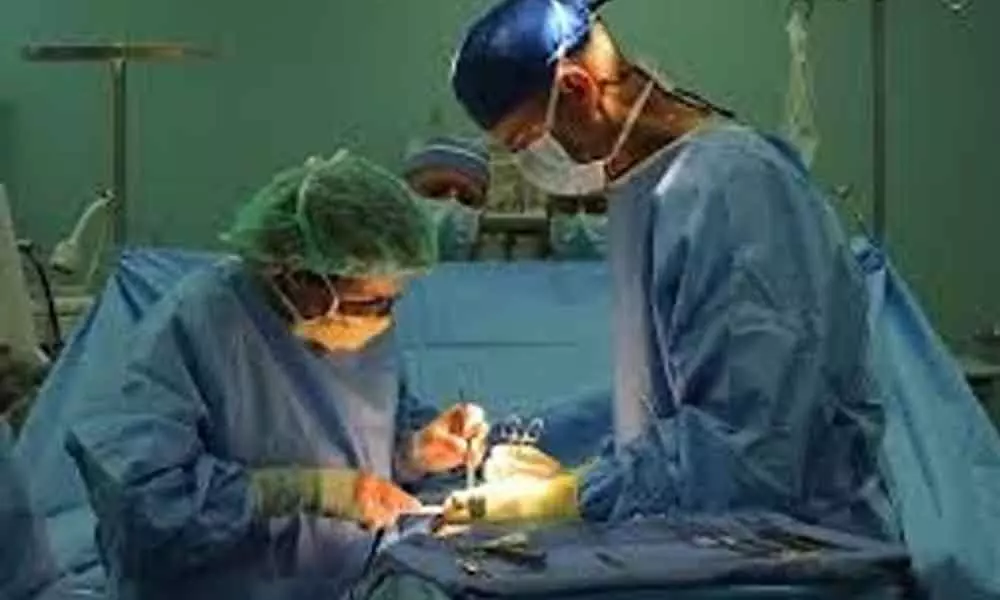Patients who undergo surgery at high death risk
 Patients who undergo surgery at high death risk
Patients who undergo surgery at high death riskResearchers, including one of Indian-origin, have found that patients undergoing surgery after contracting Covid-19 are at greatly increased risk of postoperative death, according to a new global study published in The Lancet journal
London : Researchers, including one of Indian-origin, have found that patients undergoing surgery after contracting Covid-19 are at greatly increased risk of postoperative death, according to a new global study published in The Lancet journal.
Published in 'The Lancet' journal, the global study found that amongst SARS-CoV-2 infected patients who underwent surgery, mortality rates approach those of the sickest patients admitted to intensive care after contracting the virus in the community.
In the study, the research team led by the University of Birmingham in the UK examined data for 1,128 patients from 235 hospitals and a total of 24 countries participated, predominantly in Europe, although hospitals in Africa, Asia, and North America also contributed.
The researchers noted that SARS-CoV-2 infected patients who undergo surgery, experience substantially worse postoperative outcomes than would be expected for similar patients who do not have the infection.
"We would normally expect mortality for patients having minor or elective surgery to be under one per cent but our study suggests that in SARS-CoV-2 patients these mortality rates are much higher in both minor surgery (16.3 per cent) and elective surgery (18.9 per cent)," said study co-author Aneel Bhangu from the University of Birmingham.
According to the study, the 30-day mortality among these patients was 23.8 per cent. Mortality was disproportionately high across all subgroups, including elective surgery (18.9 per cent), emergency surgery (25.6 per cent), minor surgery such as appendectomy or hernia repair (16.3 per cent), and major surgery such as hip surgery or colon cancer surgery (26.9 per cent).
The study identified that mortality rates were higher in men (28.4 per cent) versus women (18.2 per cent), and in patients aged 70 years or over (33.7 per cent) versus those aged under 70 years (13.9 per cent).
In addition to age and sex, risk factors for postoperative death included having severe pre-existing medical problems, undergoing cancer surgery, undergoing major procedures, and undergoing emergency surgery.
According to the researchers, patients undergoing surgery are a vulnerable group at risk of SARS-CoV-2 exposure in hospital.
They may be particularly susceptible to subsequent pulmonary complications, due to inflammatory and immunosuppressive responses to surgery and mechanical ventilation.
The study found that overall in the 30 days following surgery 51 per cent of patients developed a pneumonia, acute respiratory distress syndrome, or required unexpected ventilation.








